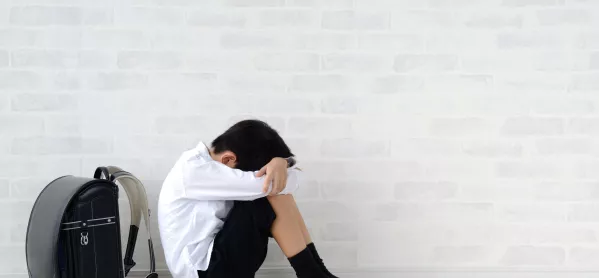“When this is all over…” has become the maxim for getting us through these challenging times, as we have adjusted to lockdown and a life seemingly in limbo. Now, as restrictions are being eased and schools are preparing to return, we are moving towards a much-anticipated kind of normality. But are we prepared for it?
In over 30 years as an educator, I have been privy to much discussion on going back to school. However, with things far from normal, going back to school is being met with a stronger than usual sense of trepidation.
The “new normal” will see our lives changed in many ways, and I know that parents and carers are worrying about the future and deciding when is best to return their children to education.
John Swinney on schools reopening: 10 things we learned
Opinion: Why pupils need a ‘soft start’ when schools return
Coronavirus: School ‘will be a strange place for returning children’
The two main concerns for adults are keeping everyone safe and ensuring that children’s emotional and social wellbeing is maintained.
Although there’s no guarantee of safety, parents can be reassured that all official guidance will be followed, with clear instructions provided to families on how they can also help to protect children.
Coronavirus: Anxiety about schools reopening
Teachers, too, will be reassured by these official requirements, knowing that there will be robust support mechanisms in place.
However, parents may feel, the good thing is that children are generally very resilient. They tend to live in the moment and so will feel less worried about going back. Often their anxieties are merely a reflection of the adult’s, so we need to be mindful of this.
Some parents, when thinking about sending their children back to school in the autumn, will be weighing up risk versus a need for contact - a longing to feel “normal” by, for example, meeting up with friends.
For families with more than one child, they may not feel this strong need to connect with others outside of their household as they have become accustomed to a new kind of family life. However, this might also spark separation anxiety when the time comes to return to school.
This separation anxiety is likely to be on the part of the parents. If a child was happy in school, then going back will probably be fine. If a child felt less secure, then maybe a phased return can be negotiated.
So, here are some practical tips:
For teachers:
- The return will be initially about ensuring children’s emotional wellbeing and supporting their social re-engagement with each other.
- Embrace the opportunities provided by a smaller group, whereby you will get to know and support each individual.
- There will be no right answers - it will be a time of trial and error as the whole school reflects continually on what’s working and what’s not.
- Observation will be key.
- The children themselves will be a guide.
For parents:
- Don’t discuss your own, adult anxieties in front of children. Avoid the negatives and “what ifs” and focus on the positives.
- Answer questions factually and directly, but don’t speculate based on your fears.
- Plan for returning carefully. Take more time preparing for older children and involve them in planning
- Make the preparations as concrete as possible and involve children - they can check their bag, wash their lunchbox, put a label on their water bottle...
- Before going back to school, organise short and frequent get-togethers with a variety of friends.
Dr Helen Prochazka is director of the Montessori Partnership, an education training institution based in Edinburgh
